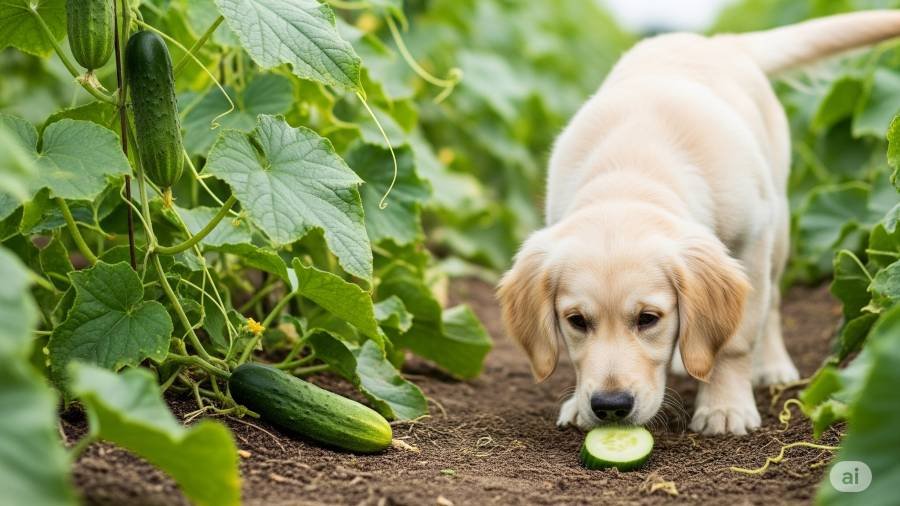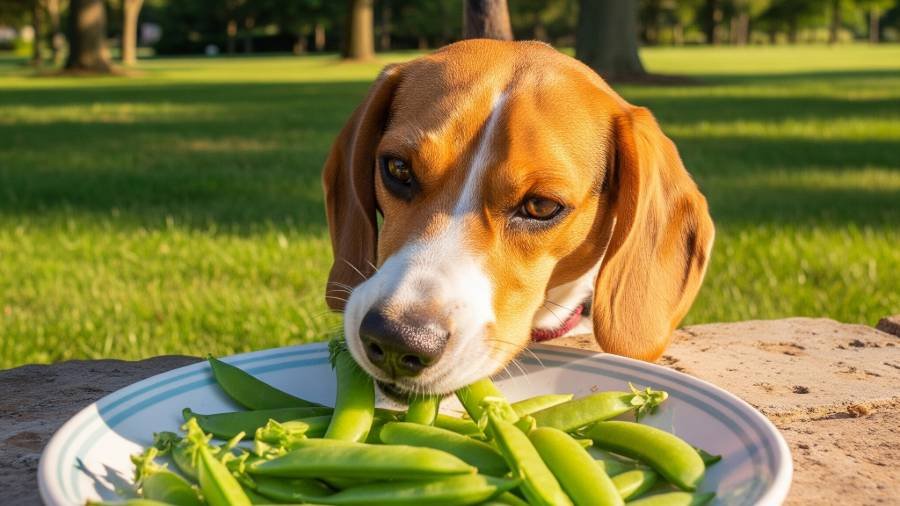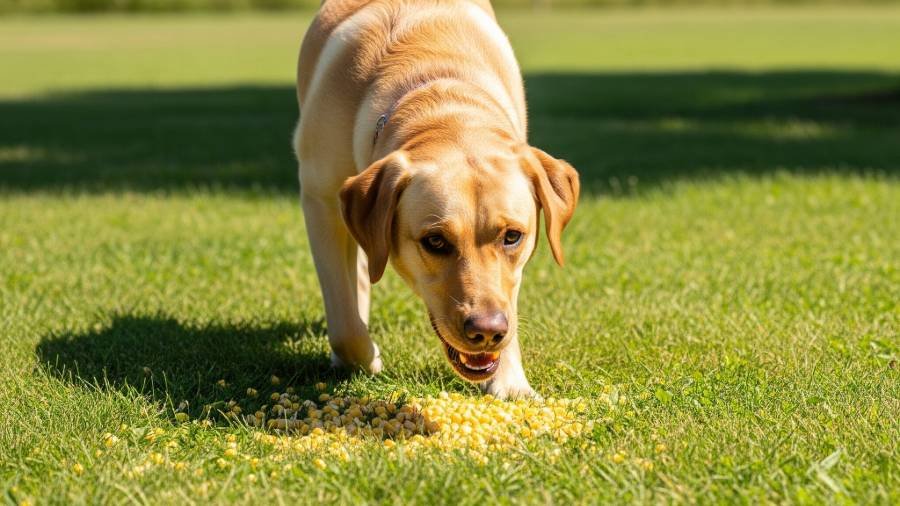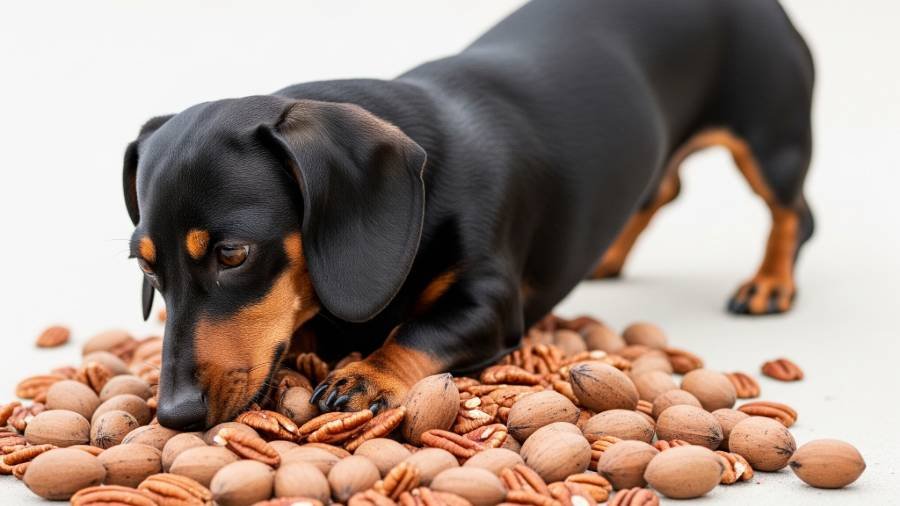Dogs can eat ham in very small amounts as an occasional treat, but it is not considered ham safe for dogs due to potential health risks associated with its preparation and content.
This article provides a unique, detailed guide on feeding ham to your dog, exploring its implications, potential dangers, and safe practices.

Potential Benefits of Ham for Dogs
When puppies eat ham or adult dogs consume a piece of ham in tiny portions, there may be limited benefits, though these are outweighed by risks:
- Protein Source: Ham offers a modest amount of protein, supporting muscle maintenance, though better sources exist for dogs.
- Flavor Appeal: The savory taste can make it an enticing dog treat, encouraging picky eaters to accept new foods.
- Minor Nutrients: It contains small amounts of B vitamins, which might contribute to energy metabolism, but this is minimal.
- Quick Energy: The fat content provides a short-term energy boost, suitable only for highly active dogs in rare cases.
These potential benefits of ham good for dogs are negligible when you consider the high fat content and sodium levels, making it an unsuitable regular addition to a dog’s diet. For more on safe meats, explore can dogs eat turkey.
Risks and Dangers of Ham for Dogs
Ham poses several health risks that make it problematic for dogs, especially in large amounts:
- High Fat Content: The rich fat in ham, particularly in holiday ham or deli meat, can lead to pancreatitis or weight gain, especially in less active dogs.
- High Sodium Content: Excessive sodium based levels can cause salt poisoning, resulting in vomiting, tremors, or even seizures over time.
- Choking Hazard: Cooked ham bones or large pieces of ham can obstruct airways, posing a significant choking hazard, particularly for small dogs.
- Toxic Seasonings: Ham often contains garlic, onions, or spices toxic to dogs, amplifying the risk when dogs eat ham bones or processed varieties.
- Gastrointestinal Distress: The high fat and sodium can upset the digestive system, causing diarrhea or stomach pain.
- Long Term Health Issues: Regular consumption may contribute to heart disease, kidney strain, or obesity, impacting overall well-being.
- Preservatives: Deli ham may include nitrates or other preservatives, which can be harmful to dogs in repeated doses.
How to Safely Feed Ham to Dogs
Given the risks, ham should be avoided or limited strictly, but if offered, follow these guidelines when feeding ham to your dog:
- Limit to Small Pieces: Offer only a tiny, unseasoned piece (e.g., a teaspoon for small dogs, up to a tablespoon for large dogs) as a rare treat, not a staple.
- Avoid Cooked Ham Bones: Never give cooked ham bones, which can splinter and cause choking or internal injuries.
- Check for Seasonings: Ensure the ham is plain, free from garlic, onions, or salt, which are toxic to dogs.
- Remove Fat: Trim all visible fat to reduce the high fat content and lower pancreatitis risk.
- Feed in Small Amounts: Restrict to once a month at most, keeping treats under 10% of a dog’s daily intake to avoid sodium overload.
- Monitor Reactions: Watch for digestive upset or unusual behavior over 24-48 hours after feeding. Consult a vet if issues arise.
- Consult a Vet: Seek veterinary advice before offering ham, especially for dogs with heart, kidney, or digestive conditions.
- Avoid Deli or Processed Ham: Steer clear of deli meat or cured ham due to high sodium and preservative content.
Signs of Ham-Related Issues
If a dog eats ham improperly or reacts poorly, look for these warning signs:
- Vomiting, diarrhea, or reduced appetite (possible gastrointestinal distress from fat or sodium)
- Difficulty breathing or choking (from ham bones or large pieces)
- Lethargy, tremors, or seizures (indicators of salt poisoning)
- Excessive thirst or urination (sodium imbalance)
- Abdominal pain or bloating (pancreatitis or digestive strain)
If these signs appear, stop feeding ham and contact a veterinarian immediately. Severe cases may require urgent care.
Expert Opinions
Veterinary experts, including the American Kennel Club (AKC) and the Pet Poison Helpline, caution against feeding dogs ham regularly, citing its high fat content, sodium levels, and potential toxic seasonings as reasons it’s not ham safe for dogs.
They recommend plain, lean meats in moderation and immediate vet consultation if issues arise.
Additional Considerations
- Health Conditions: Dogs with pancreatitis, heart disease, or kidney issues should avoid ham entirely. Consult a vet first.
- Puppies: Young dogs are more susceptible to fat and sodium effects.
- Dog Preferences: Some dogs love ham’s flavor, but this doesn’t justify regular feeding. Keep it out of reach.
- Holiday Caution: During holiday ham season, secure leftovers to prevent theft by curious dogs.
- Storage: Store ham in sealed containers to avoid accidental consumption.
Safe Treat Alternatives
Instead of ham, consider these safe-for-dogs treats, tailored to enhance a dog’s diet:
- Cooked Eggs: Plain, hard-boiled eggs provide protein.
- Cooked Peas: A small serving of plain peas supports digestion.
- Bananas: A few sliced bananas offer potassium.
- Plain Cottage Cheese: A teaspoon of low-fat cottage cheese boosts calcium.
Introduce new treats gradually, monitor for reactions, and consult a vet to ensure a balanced diet.
Dogs can eat ham in very small, unseasoned pieces as an occasional treat, but it is not ham safe for dogs due to its high fat content, high sodium content, and potential toxic seasonings, which can lead to digestive system issues, choking hazard from cooked ham bones, or long term health issues like pancreatitis.
Risks from large amounts or processed deli meat necessitate strict limitation, avoiding feeding ham to your dog regularly, and seeking vet care if consumed in excess.
Puppies or dogs with health conditions like heart disease should avoid ham unless approved by a vet, prioritizing a balanced diet with safer alternatives.
Always consult a veterinarian before offering ham, and opt for healthier options.
For more on canine nutrition, explore can dogs eat sardines or what vegetables can dogs eat.
For additional questions about what dogs can eat or dietary concerns, feel free to ask!





